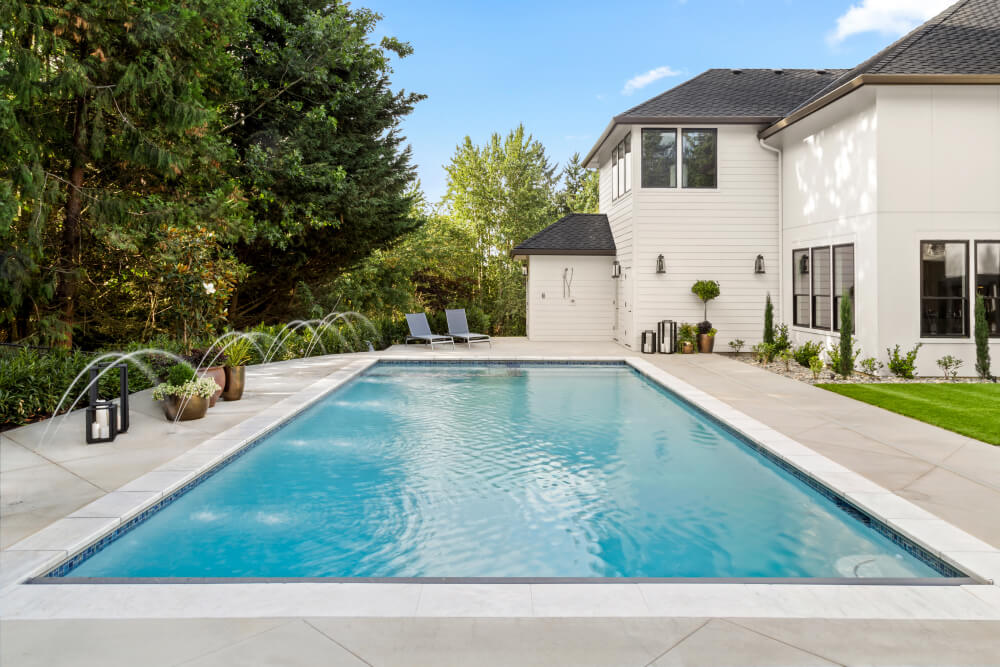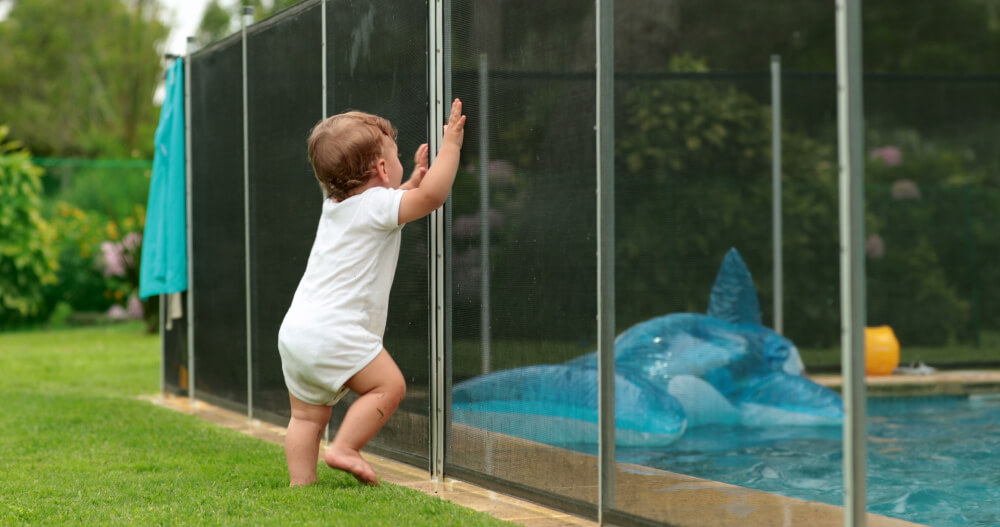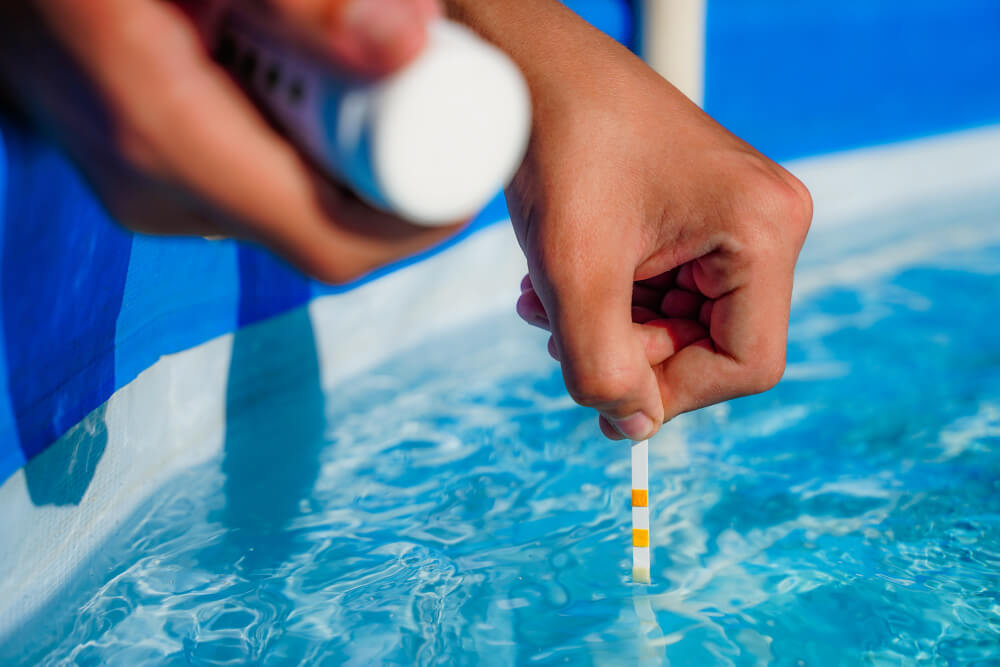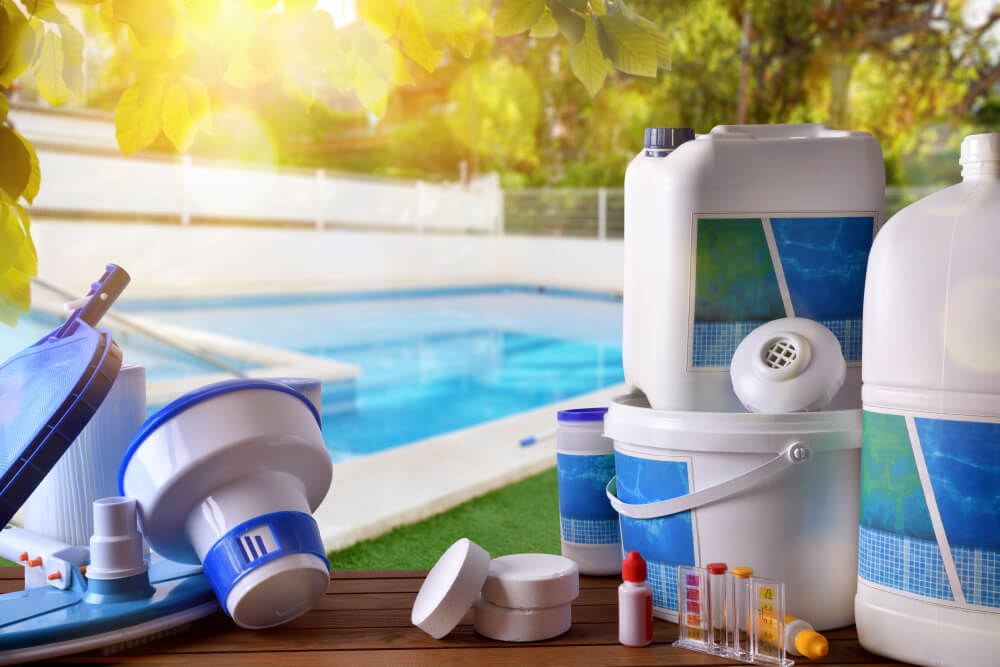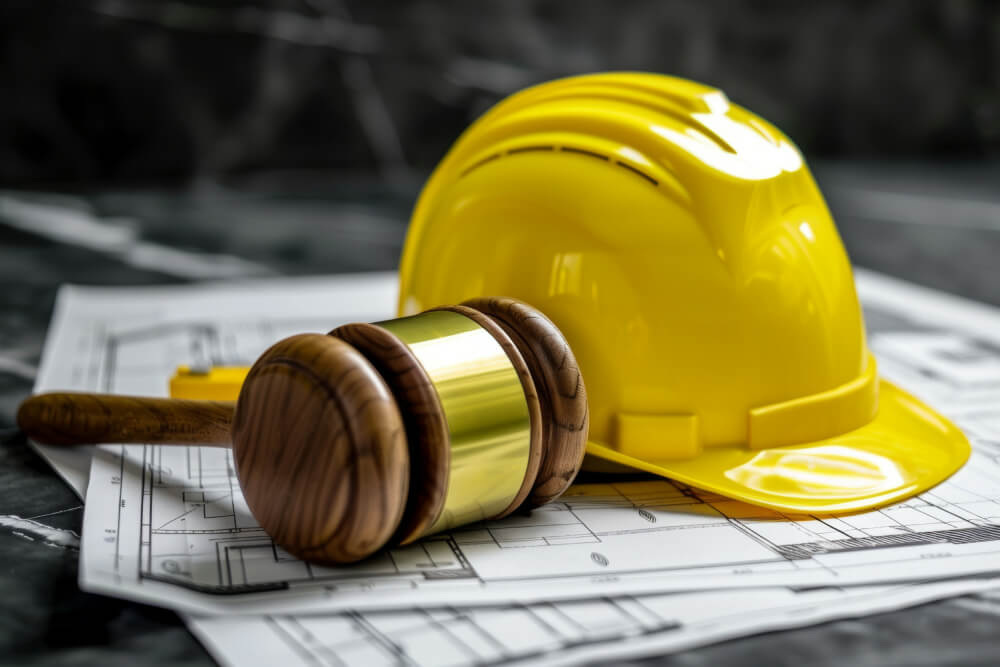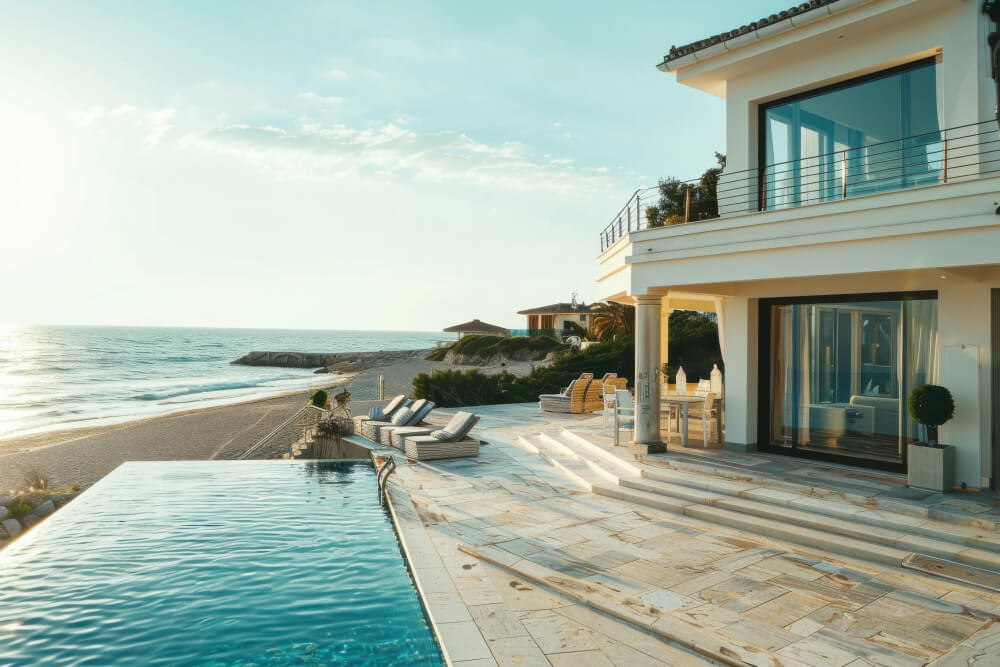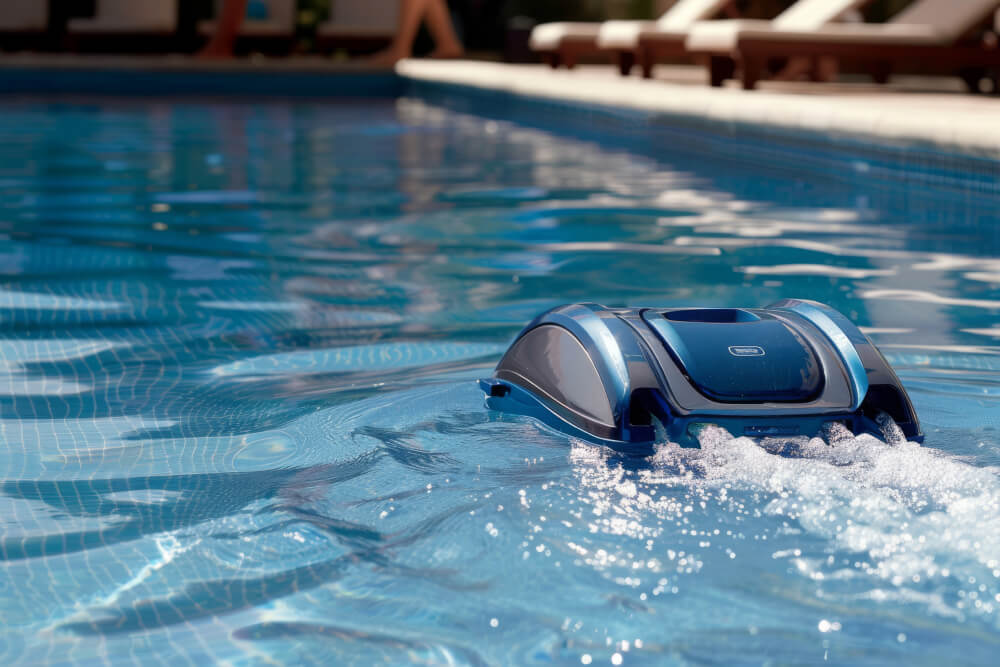Maintaining a pool involves regular upkeep to ensure clean, safe, and enjoyable swimming conditions. While some tasks can be easily handled by homeowners, others require the expertise of professionals. Understanding what you can do yourself and when to call in a professional can save you time, money, and potential headaches. This comprehensive guide outlines the essential DIY pool maintenance tasks and identifies situations when professional help is necessary.
Essential DIY Pool Maintenance Tasks
Skimming and Cleaning Daily Skimming:- What to Do: Use a pool skimmer to remove leaves, bugs, and debris from the surface of the pool. This prevents the debris from sinking and accumulating on the bottom.
- Why It’s Important: Regular skimming keeps the pool clean, reduces strain on the filtration system, and maintains water clarity.
- What to Do: Brush the pool walls, steps, and floor at least once a week to remove algae and dirt. Use a brush suitable for your pool surface (nylon for vinyl or fiberglass, stainless steel for concrete).
- Why It’s Important: Brushing prevents algae buildup, keeps the pool surfaces clean, and improves water circulation.
- What to Do: Attach a manual vacuum to your pool’s filtration system and vacuum the pool floor and walls weekly. Move slowly to avoid stirring up debris.
- Why It’s Important: Regular vacuuming removes dirt and debris that the skimmer and filter miss, ensuring a cleaner pool.
- What to Do: Consider investing in an automatic pool cleaner (robotic, suction, or pressure) for more convenient and efficient cleaning.
- Why It’s Important: Automatic cleaners can reduce the time and effort required for manual vacuuming, maintaining consistent cleanliness.
- What to Do: Test your pool water’s pH, alkalinity, and chlorine levels at least twice a week using a reliable test kit.
- Why It’s Important: Maintaining balanced water chemistry prevents algae growth, protects pool surfaces and equipment, and ensures safe swimming conditions.
Join HICP Homeowner’s Alliance
Connect with experts, get special discounts and enjoy member benefits
Adjusting Chemicals:
Checking and Adjusting Water Levels:
Shocking the Pool:
Cloudy or Green Water:
Pump, Heater, or Filter Problems:
Structural Repairs:
- What to Do: Based on test results, add the necessary chemicals to balance the water. Common adjustments include adding chlorine, pH increaser or decreaser, and alkalinity increaser.
- Why It’s Important: Proper chemical balance keeps the water clear, prevents irritation, and prolongs the life of your pool and its equipment.
- What to Do: Clean your pool filter regularly. For cartridge filters, rinse them with a garden hose every few weeks. For sand filters, backwash according to the manufacturer’s instructions. DE (diatomaceous earth) filters require backwashing and adding new DE powder.
- Why It’s Important: Clean filters ensure efficient water circulation and filtration, keeping the pool water clear and reducing strain on the pump.
- What to Do: Inspect the filter for wear and tear and replace parts as needed. Follow the manufacturer’s guidelines for maintenance and replacement.
- Why It’s Important: Regular inspection and maintenance of the filter prevent breakdowns and extend the filter’s lifespan.
Checking and Adjusting Water Levels:
- What to Do: Monitor the pool’s water level weekly. It should be at the mid-skimmer level. Add water with a garden hose if the level is too low.
- Why It’s Important: Proper water levels ensure efficient skimming and prevent pump damage. Low water levels can cause the pump to run dry and overheat.
Shocking the Pool:
- What to Do: Perform a shock treatment every 1-2 weeks or after heavy pool use, rainstorms, or algae outbreaks. Add a large dose of chlorine to the pool to eliminate contaminants.
- Why It’s Important: Shocking the pool keeps the water clear, kills bacteria, and prevents algae growth. It’s an essential part of maintaining healthy water chemistry.
When to Call a Professional
Persistent Water Clarity IssuesCloudy or Green Water:
- What to Do: If your pool water remains cloudy or green despite regular maintenance and chemical adjustments, it’s time to call a professional.
- Why It’s Important: Persistent water clarity issues can indicate underlying problems such as filtration issues, chemical imbalances, or algae blooms that require expert diagnosis and treatment.
Pump, Heater, or Filter Problems:
- What to Do: If you notice unusual noises, leaks, or a drop in performance from your pool pump, heater, or filter, seek professional help.
- Why It’s Important: Attempting DIY repairs on complex pool equipment can lead to further damage and void warranties. Professionals have the expertise to diagnose and fix equipment issues correctly.
Structural Repairs:
- What to Do: For major repairs such as fixing cracks in the pool shell, replacing the liner, or resurfacing the pool, always call a professional.
- Why It’s Important: Structural repairs require specialized skills and equipment. Improper repairs can lead to more significant damage and costly fixes down the line.
Renovations and Upgrades:
- What to Do: For significant upgrades like installing new pool features, upgrading the filtration system, or adding a heater, hire a professional contractor.
- Why It’s Important: Professionals ensure that renovations and upgrades are done correctly, safely, and comply with local codes and regulations.
- What to Do: If you encounter any electrical problems with your pool’s lighting, pump, or other equipment, contact a licensed electrician.
- Why It’s Important: DIY electrical work can be dangerous and is often illegal without proper licensing. Professionals ensure that electrical repairs meet safety standards and local codes.
- What to Do: If you struggle to maintain proper chemical balance despite regular testing and adjustments, consult a pool professional.
- Why It’s Important: Persistent chemical imbalances can damage the pool and equipment and pose health risks. Professionals can provide accurate testing and tailored solutions.
- What to Do: Consider hiring professionals to open and close your pool at the start and end of the swim season. This includes tasks like removing and storing the cover, reassembling equipment, balancing chemicals, and winterizing the pool.
- Why It’s Important: Proper seasonal maintenance ensures that your pool is ready for use and protected during the off-season. Professionals have the expertise to perform these tasks efficiently and correctly.
DIY pool maintenance can save you money and give you a sense of satisfaction in caring for your pool. Regular tasks like skimming, brushing, vacuuming, testing water chemistry, and cleaning filters can be easily managed by most homeowners. However, recognizing when to call a professional is crucial to prevent damage, ensure safety, and maintain the longevity of your pool.
By balancing DIY efforts with professional assistance, you can enjoy a clean, safe, and well-maintained pool all year round. Remember, regular maintenance not only enhances the swimming experience but also protects your investment, ensuring many years of enjoyment for you and your family.
Get Your HICP eBook
The source for expert tips and best practices

